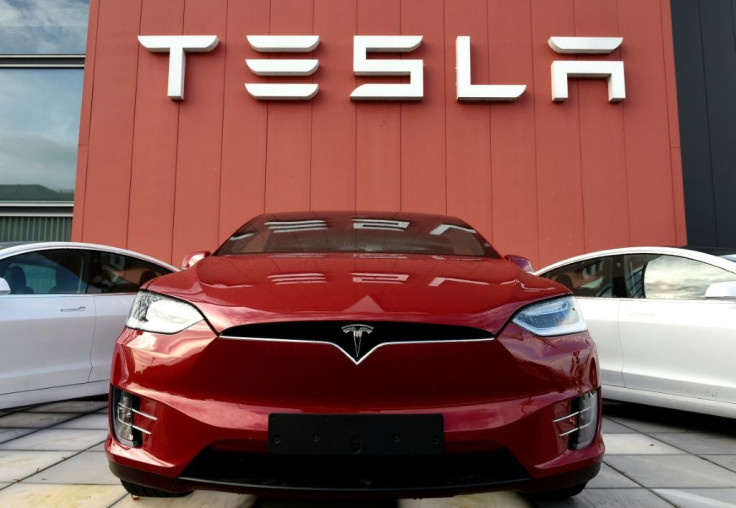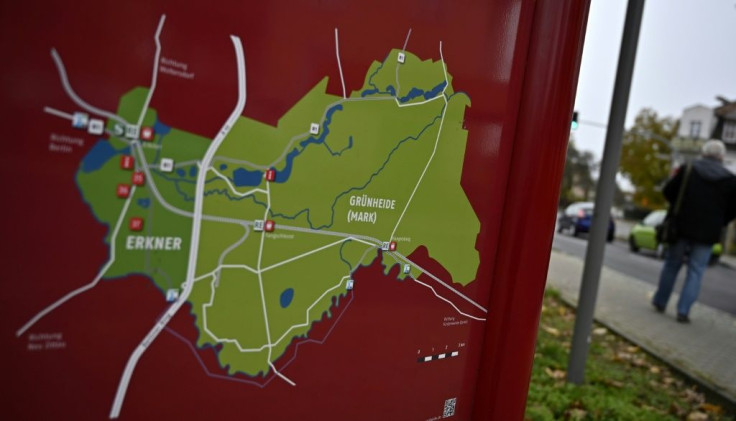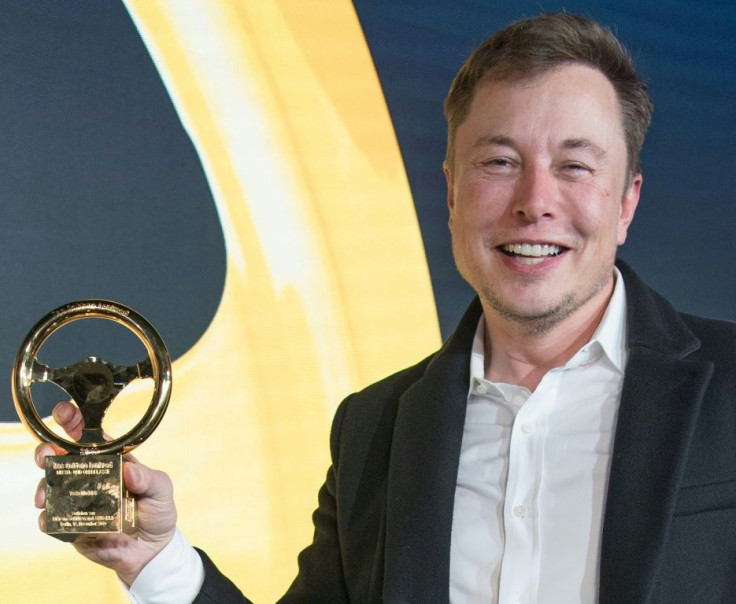Promise And Peril For German Carmakers In Tesla's Berlin Touchdown

Hopes are high that US electric pioneer Tesla's first European factory just outside Berlin will boost German carmakers, but it also ups the pressure on homegrown manufacturers to raise their battery-powered game.
Elon Musk's Tuesday announcement that his Californian firm is coming marks the first foreign car company setting up shop in Germany "in decades," said analyst Stefan Bratzel of the Center of Automotive Management -- "symbolic for the new world and the reordering of the industry."
Economy minister Peter Altmaier trumpeted "a great success," saying Germany had prevailed in "intense competition" with other European countries.
Musk unveiled Tesla's European touchdown at an industry event in Berlin, saying he had picked a site in Brandenburg for the factory, which is expected to bring roughly 7,000 jobs.
Slated for an area southeast of the German capital, the plant "will build batteries, powertrains and vehicles, starting with Model Y" SUVs, Musk later tweeted.
Production is to start in 2021 at the earliest.
"I think it's a good thing, it will create jobs and electric cars are good for the environment," said Mathias Wirth, who lives in Gruenheide, set to host the Tesla plant.
"It's a big opportunity for people living here," agreed fellow resident Iris Siebman.

Tesla accounts for almost one in three electric vehicles sold in western Europe, and worldwide sales of its Model 3 have already overtaken those of BMW's 3 Series sedans, although "German sales remain disappointing", according to analyst Matthias Schmidt.
Electric vehicles more broadly have fallen short of ambitions, with Chancellor Angela Merkel this year targeting one million on the road by 2022 -- two years later than she had previously aimed for.
"Elon Musk's decision in favour of Germany... adds more momentum to electric mobility than 100 summits called by the chancellor," said Ferdinand Dudenhoeffer, head of the University of Duisburg-Essen's Center for Automotive Research.

"Competition has always made people better and faster, so it's good news for Volkswagen, BMW and Daimler too," he added.
But there is also no doubt Musk's move "puts pressure on the Europeans and the Germans," said Christoph Schalast, professor at the Frankfurt School of Finance and Management.
German giants are behind in adapting fleets to meet new European emissions limits, and have left it until late to commit to electric drive in a big way.
In the near term, bosses "won't be losing too much sleep, but the danger is if they wait too long with their own credible electric vehicle offerings, they may begin to lose some of their credibility," analyst Schmidt said.
A German car industry source told AFP they were relaxed about Tesla's announcement, hoping the competitor's arrival would accelerate the country's electric transition.
On stage Tuesday, Musk hailed "outstanding" German engineering as one factor playing into the choice for Berlin.
The capital can lend "creativity" and English-speakers, "the engineering and programming hipsters," while Brandenburg offers "a lower than average paid workforce in the former East Germany" and space to expand.
But Schmidt warned the Californian risks running into "bureaucratic hell" in Germany, with Musk's new site just a few kilometres (miles) from the Berlin-Brandenburg airport.
The planned hub is almost a decade behind schedule, largely down to problems with its fire suppression system.
Even without such dramatic delays, Tesla is unlikely to throw together a factory in the one year its new Chinese site required.
Work is to start in early 2020 with a budget of several billion euros (dollars), Brandenburg's economy minister was quoted by the news agency DPA as saying.
© Copyright AFP 2024. All rights reserved.





















